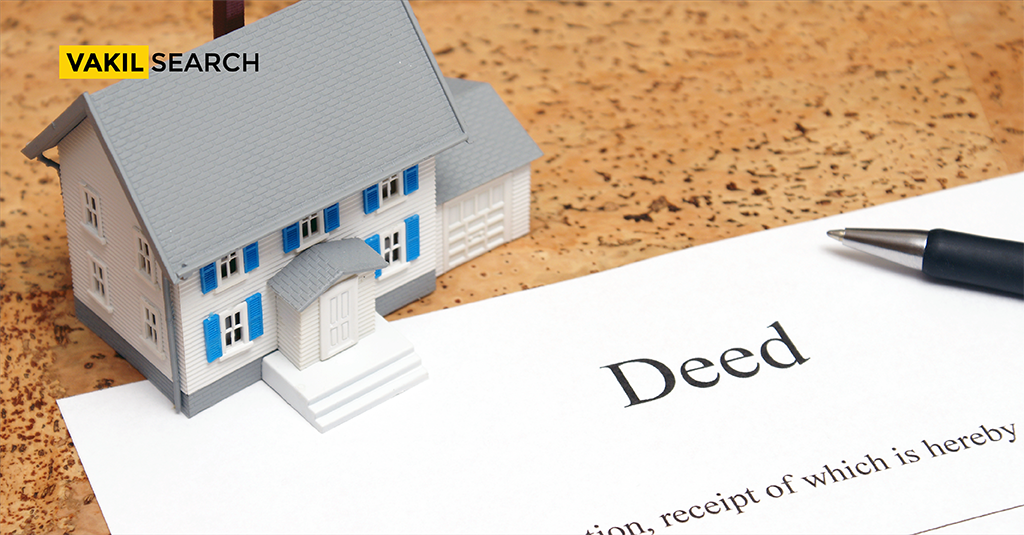If you have a registered gift document, you will have a better chance of avoiding any litigation that may arise in the future.
Giving and receiving gifts are two of the most rewarding experiences in life. Whatever the size of a Gift Deed, it’s still a gift. However, when presenting a house, particular formalities should be followed, so the owner has clear titles and documentation of the house. Since deed of gift come with government certification, they’ve become increasingly popular.
When you offer someone a piece of house as a gift, you can use a deed of gift, which is the legal way to do so. For this exchange to be legal, it must be done between a donor and recipient. The recipient or Donee must accept the gift. To be considered a legal gift deed of property, it must be given freely, without hope of return, and with no expectation of remuneration.
Registrar’s Fees for Deed of Gift
Gift deeds are liable for State Stamp duty.
- Delhi
- Men: 6%
- Women account for 4% of all participants.
- Gujarat 4.9% of the market
- Karnataka
- Families: 1,000-5,000
- In terms of land value, non-family: 5.6%
- Maharashtra
- Family: 3%
- Relatives: Only 5%.
- Agricultural land: Rs. 200
- Punjab
- Family: 0
- Non-Family: 94%
- Rajasthan
- Men: 5%
- Women: 4% and 3%, respectively.
- SC/ST/BPL: 3%
- Widow: There is none.
- wife: 1%
- Nearby relatives: 2.5 per cent
- Tamil Nadu:
- Family:1%
- Non-family members: 7%
- Uttar Pradesh
- Men: 7%
- Women make up just 6% of the population.
- West Bengal
- Family: 0.5
- Non-Family: 94%
- Above 40 lakh: 1% surcharge
Each state has its stamp duty for registering deeds of gift; it varies. Stamp duty can be paid in person, online, or at the registrar’s office.
Tax Exemption
Taxes are not due if the money is obtained from any of the people listed below, according to the Indian Income Tax Act.
- The present was given to you by family members, or
- For example, if the recipient of the gift (Donor) is getting married or if the recipient is becoming engaged.
- It is possible to receive a monetary gift as a legacy or inheritance.
- If the donation is received with the expectation that the Donor would die, or
- A contribution from a municipal authority, as defined in Section 10(20) of the Income Tax Act, or a charitable organisation is tax-deductible if the Donor is a United States citizen.
- Section 10(23C) of the Income Tax Act mentions that a gift received from a medical facility or hospital, a charitable foundation, educational organisation, medical institution or trust, or
- However, if the donation is received from an incorporated trust or institution (registered under Sections 12-A and 12-AA), or any other entity, the gift is exempt from taxation.
- Someone can receive a gift from a trust set up purely to benefit the recipient’s family member.
Is Stamp Duty Necessary for Gift of Land to an NGO?
In most circumstances, no stamp duty is associated with giving land to a non-profit organisation or charity centre. You’ll need to check with your state’s government to see what restrictions are in your area. Non-profit organisations may also be prohibited from accepting the land as a donation. To discover this, you should employ an expert.
What Has to Be in a Deed of Gift Format?
An existing land that is transferable, whether movable or immovable, can be transferred with the help of a gift deed. If you have a registered gift document, you will have a better chance of avoiding any litigation that may arise in the future.
Sample Format of a Gift Deed
A sample gift deed
(Immovable Gift Deed Format)
Let’s look at a Gift Deed Form sample to understand its content.
DEEDS OF CHARITY
A DEED OF GIFT was signed and sealed on this day, this month and year at the following location: _______ (background).
BETWEEN:
(Donor’s Name)
(Donor’s Name and Address)
THE DONOR” will now be known as such
AND
(Donor’s Name)
(Donor’s Address)
“THE DONEE” of other PART will be referred to afterwards.
Witnessed as follows:
- Donor and Donee are terms and expressions. Wherever they appear, their heirs, administrators, executors, successors-in-interest, and assignees will also be included.
- The Donor is the sole owner of the __________ (immovable property) located at (Place) with a measurement of __ metres, as more specifically detailed in the “Schedule Property.”
- To obtain the Scheduled Property, the Donor used ______ (provide the deed description by which the Donor bought or acquired the gift property; for example, title documents of the gift real estate).
- The Donor also claims ownership of the Scheduled Property. Natural affection for the Donor drives them to give the Donee the property. The Donor is a member of the same family as the Donee (relationship). They provide the Donee with all their rights, titles, and interests in the property. Due to this, the Donor is no longer required to give up the Scheduled Property. Gifted property can also be used and owned by the recipient, entitled to all rights and privileges.
Conclusion
We must remember that tax deductions are granted for our advantage and that we pay tax only for our benefit. Consequently, it is prohibited to utilise a deed of gift to avoid paying taxes or for any other illegal purpose. A deed’s words describe the transaction’s nature when it comes up in civil litigation, where a judge must determine what the deal was. Deed of gift are critical documents that must be written carefully. All prerequisites for producing a deed of gift must be met for the deed to be considered valid. Vakilsearch can help you create the gift deed, which will assist you in determining if the document is a gift deed or a different type of transfer document.
Read more:




